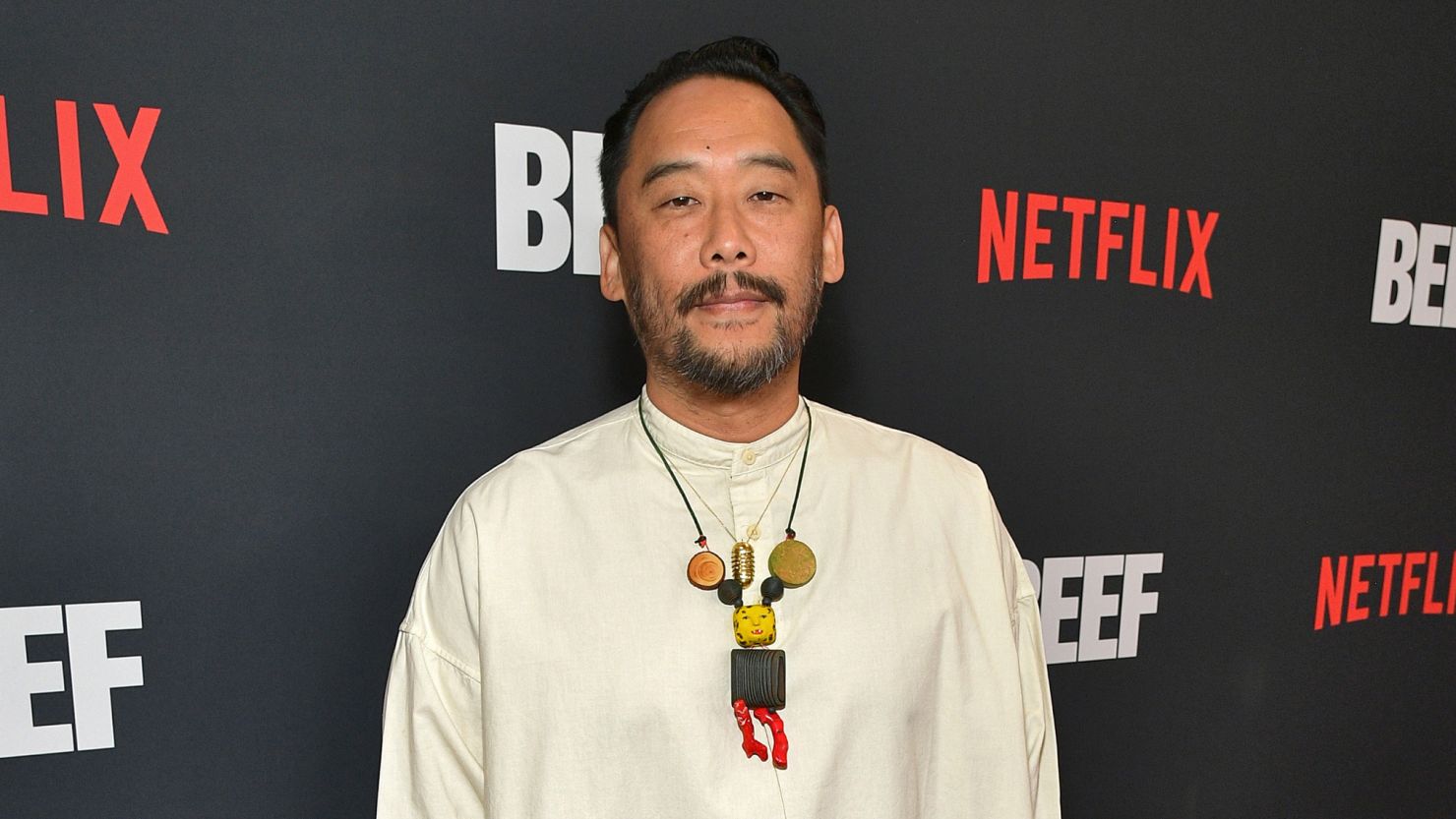Editor’s Note: Jeff Yang is a research director for the Institute for the Future and the head of its Digital Intelligence Lab. A frequent contributor to CNN Opinion, he co-hosts the podcast “They Call Us Bruce,” and is co-author of the book “RISE: A Pop History of Asian America from the Nineties to Now.” The opinions expressed in this commentary are his own. Read more opinion on CNN.
After watching “Beef,” the Netflix black comedy that was instantly dubbed the best TV show of the early season by critics and early viewers alike, I was ready to write an essay about bad faith, bad choices, community and redemption — all of which are key throughlines of the series, and all of which would be deeply resonant for anyone who, like me, grew up in an Asian American evangelical congregation. (The show’s scenes set in that environment are so precisely drawn and perfectly played, highlighting both the authentic comfort of that world, and the hypocrisy and pettiness that can lurk beneath it, that watching them felt like I’d fallen through a mirror into my own childhood.)

And then sharp eyes on social media provided an even sharper reminder of something that tainted the show’s brilliance — notably, the casting of infamously chaotic street artist David Choe as Isaac Cho, the unpredictable and violent cousin of down-on-his-luck co-protagonist Danny Cho (played by Steven Yeun, also one of the show’s executive producers).
Because back in 2014, Choe had publicly announced on a podcast he cohosted with porn star Asa Akira that he’d once coerced a Black masseuse into a nonconsensual sexual act. “You raped,” Akira clarified. Choe pushed back on that description, but later in the episode referred to himself as a “successful rapist.” Those statements — which Choe has since retracted, reframing the anecdote as entirely fictional, and the podcast as an exercise in shock-theater performance art — caused an uproar, and prompted protests and boycotts of his exhibitions.
But it didn’t silence him or remove him from the public eye. It didn’t prevent him from making cameos on “Better Things” and “The Mandalorian” (!), or from getting his own series on FX and Hulu, “The Choe Show.” And it didn’t stop him from being cast in a meaningful role on a show that promised to shatter and reconstruct the world’s perspective on what it means to be Asian American — stripping back the plastic wrapper of the “model minority” stereotype to reveal us as hungry, hopeful, hollow, damaged … and human.
One might wonder why Choe’s appearance in “Beef” prompted the revival of decade-old controversy, when two seasons of headlining a show of his own did not. That’s the wrong question. The real question is why the shock and disgust faded away so quickly, even for those like myself who had reacted with horror upon hearing about his story when it was fresh news in 2014.
Well, here are some uncomfortable answers:
First, Hollywood memories are short, when they matter at all. Talented people, even truly terrible talented people, don’t go away, they just go to celebrity rehab or get defended for their brilliance. Mel Gibson is headlining and making movies again; hell, he’s getting nominated for Oscars. Roman Polanski and Woody Allen never stopped.
Second, until the past half decade, Asian Americans had so few opportunities to watch, participate in and celebrate media centered on ourselves that we’ve both consciously and unconsciously restrained our criticism of high-profile people and projects in our community. The fear in publicly calling out bad art — and yes, bad behavior — was always that it might crush the thin green shoots of opportunity springing up around us, reverting us to an era where Asian American stories were seen as untellable and Asian American performers as unbankable. (No one has reflected more on their complicity in this than myself, as someone who’s spent my entire adult life as a public booster for Asian American media.)
Third, the sudden arrival of what feels like “our time,” this pivotal moment for Asian America when talent is finally intersecting with opportunity and a plethora of diverse and terrific work is erupting onto screens, has tempted us to overlook how much work still has to be done. Showbiz glitz and glamour, the glitter of “gold opens,” shouldn’t blind us to the very real flaws, fault lines and inequities that remain in our community, or to the continued marginalization and harm being enacted on those beyond it. But sadly, it often does.
And fourth and perhaps most specific to “Beef” is this: As a culture, America has long been fascinated by volatile, self-destructive artists, transforming them from human beings who chronically harm themselves and those around them into icons of free expression, unfettered inspiration and social liberation. We tend to valorize the stars whose catastrophic implosion fuels our pop culture, because from our position of safety on the other side of a page, headset or screen, they let us feel danger and risk without consequences — or at least, without consequences for us.
That’s particularly true for Asian Americans, constantly burdened by the perception that we’re hard-working, conformist, basic and boring. Against that backdrop, the David Choes of our community pop. They remind people: Not All Asians. And so it’s easy to see why the creators of a show like “Beef” might find it so tempting to cast him in a role that mirrors his unhinged and unrepentant public image – in a show that seeks to explore and illuminate dark, desperate, shameful and shameless elements of our Asian American reality.
Choe is the show’s broken bad-boy mascot, infusing its branding — his artwork surrounds every episode — and lending it a dangerous authenticity. But that comes with a price, paid by people other than Choe and those involved with the show.
At the very least, Choe has engaged in repulsive rape normalization, inventing a story that excuses and diminishes rape in his thirst for shock and edginess. Does Rose the masseuse exist? If she does, did Choe do what he originally said he did? Even if, as he now claims, she doesn’t and he didn’t, there are millions of Roses out there who have been abused, raped or worse — and Choe’s confabulation makes it easier to ignore or trivialize them, and by extension risks making it easier for them to be victimized again.
But watching the actual video of him telling the story for the first time as it made the social media rounds this weekend, I had the nauseating feeling that he might not be lying, or not completely lying. What’s even more grotesque, though, was how the room of podcast guests laughed off the anecdote as essentially just “David being David,” as demonstrated by a video clip from the episode shared by journalist Aura Bogado. After the clip went viral, Choe responded by using Digital Millennium Copyright Act (DMCA) takedown requests in an attempt to remove Bogado’s tweets and TikToks — not exactly the reaction of someone with a shred of remorse.
The clip reminded me that every person who’s let this horrifying incident slide over the years is metaphorically in that room too: The studios. The platforms. The creators, the critics and me — staring into the distance with a fixed smile, pretending it isn’t happening, waiting for it to be over.
That’s unacceptable. When we talk about rebuilding Hollywood, we can’t do it on the same rotten foundations. And ironically, the lesson of “Beef” itself is that as much as it hurts to reckon with our own failures, it hurts more people and causes more damage when we fail to do so — all of which is to say, the individuals and institutions associated with the show can’t stay silent.
So ultimately, this essay about “Beef” turned out to be about bad faith, bad choices, community and redemption after all. Just not in the way I’d imagined a few weeks ago.


